
Why You Need Keyword Search Volume in the SerpWatch Rank Tracker
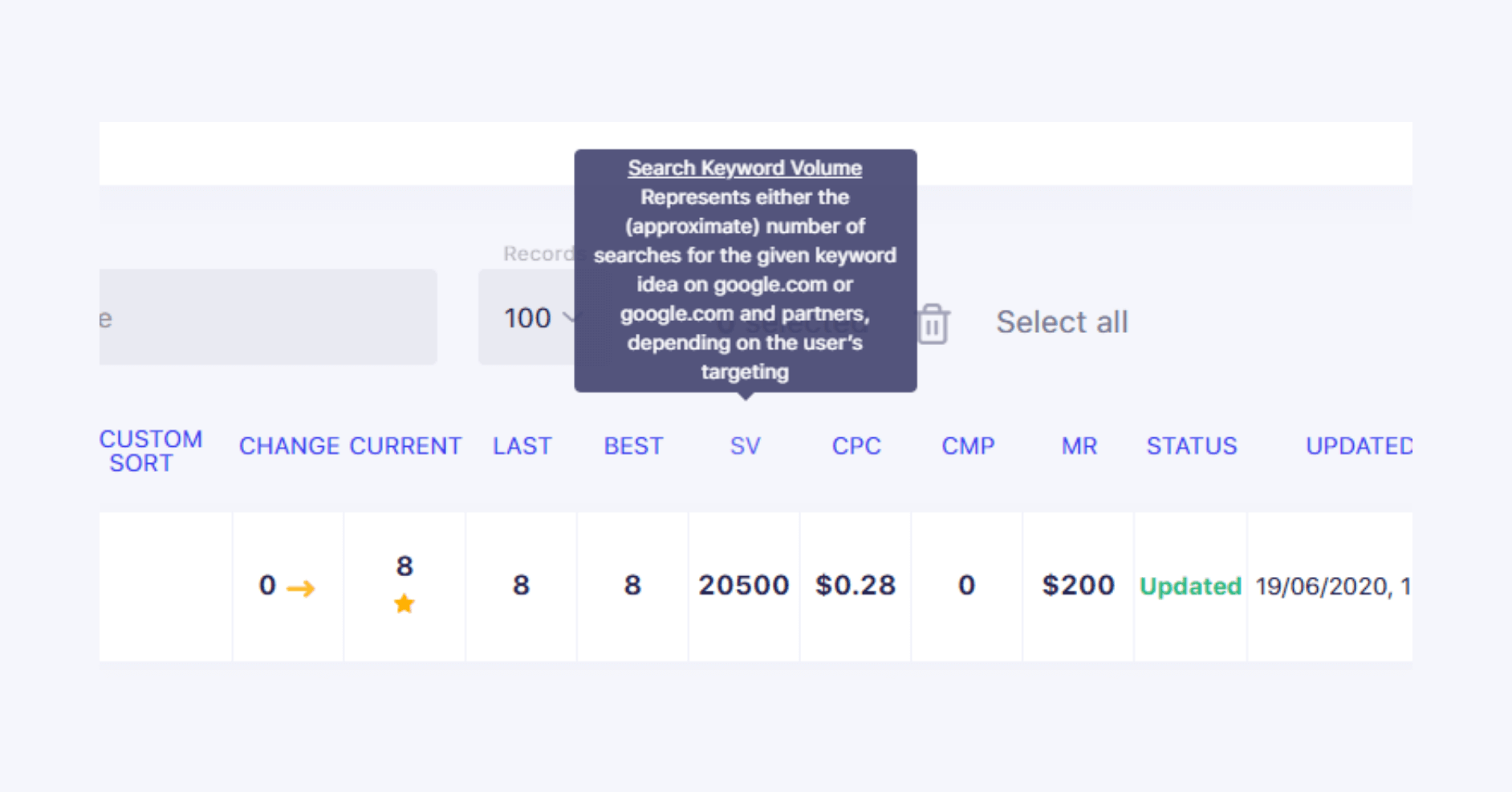
If you’ve dealt with SEO even a little bit in your line of work, then you know that it all starts with keywords—those little words and phrases your customers use to find you online. You might have found this article in a similar way.
That’s the best-case scenario, where you’ve got a pretty good picture of which keywords represent your business the best, a nice keyword search volume, and a way to utilize it for your benefit.
This is also where SEO tools—specifically those that deal with keywords—come in handy. SerpWatch is one of those tools.
While SerpWatch focuses on monitoring keyword rankings, one of the metrics it displays and takes into account for features like SW Score is the Google search volume by keyword.
So take a look at what exactly that is, how it works and why it is important, and see why you should start using SerpWatch in your SEO efforts.
What Is Keyword Search Volume?
The term is pretty self-explanatory, but still worth delving into.
Search volume represents the number of searches performed for a particular keyword within a specific time frame—usually a month.
The most common use for this SEO metric is to provide different types of marketing specialists a general idea of how competitive a term is in regard to the overall volume of searches.
This metric is particularly useful when it’s put into context, as it provides a wealth of information about the way certain keywords are able to drive website traffic over time.
But what does that mean specifically?
For example, ecommerce businesses depend on seasonal sales for a large part of yearly profits. In order to create and carry out a successful digital marketing campaign, they must take into account the “seasonality” of the Google keyword search volume, as it often plays an important role in reading keyword trends.
That means that some keywords experience significant growth in search volume at specific times throughout the year, like “Christmas gift ideas” does close to the years’ end.
On the other hand, there are keywords that never experience big rises and falls in search volume. While most marketers have a pretty good idea which is which, it’s important to note that some keywords have a cultural or religious connotation. Thus, a term that may be seasonal in one country may not be in another—those that explore keyword trends on an international level need to consider this.
Why Is Keyword Search Volume Important?
Knowing the search volume behind the keywords you want to target can get you a variety of information:
- Search trends
- Website traffic potential
- Content topics.
This is one of the key metrics worth considering for creating and implementing a complete SEO strategy that should result in attracting new website traffic.
For most of the successfully built brands out there, organic search still brings the biggest number of visitors and, among them, qualified leads.
Therefore, when creating content for your website, it’s important to target phrases with some actual keyword search volume. What good is ranking on the first page of Google if no one is really looking for the terms you’ve ranked there for?
By the same token, targeting keywords with an extremely high search volume will probably get you nowhere, as it is difficult to compete with the big guys with much bigger marketing budgets.
If you are looking to boost your paid traffic, knowing the number of searches and intent behind the keywords you want to target is crucial for building an effective PPC strategy. High-volume terms are usually more competitive, and thus more expensive, especially if they come with the commercial search intent.
What Is a Good Keyword Search Volume?
The short answer is—the bigger the value, the better the search volume for your keyword. The long answer is—it’s actually not that simple.
As a general rule of thumb, a bigger search volume means a lot of people are exploring the same term you want to target with your marketing campaign. At first glance, that means you will get more traffic from Google.
However, the best way to estimate the actual popularity level of a keyword is by examining the following facets:
- Your vertical—If you own a business that deals with order fulfillment, you can’t expect the main keyword “order fulfillment” to come with millions of searches (it actually has around 4,300 worldwide).
- Exact location—The more specific location you input into your keyword search volume tool, the smaller the number of searches you can expect to get. While this may sound discouraging to many SEOs, it’s quite an important aspect to consider when conducting keyword research for a local brick-and-mortar business.
- Keyword specificity—Always take into account how closely defined a keyword is when checking. Broader terms like “US food order fulfillment” will have a bigger search volume than more specific ones like “order fulfillment software.”
How to Check Keyword Search Volume?
There are a variety of tools specialized for providing this kind of information, most of which are quite famous. Here are some of them.
Google Keyword Planner
If you need a digital tool, Google is your friend. And as expected, they haven’t disappointed when it comes to providing a tool for keyword research either. Google Keyword Planner is one of the most famous and widely used tools out there.
It’s free and gives masterfully precise data when used in congruence with AdWords. You can’t get much better than getting raw data from the masters of internet search themselves.
Moz Pro
An excellent SEO tool all around, Moz Pro is particularly useful and on-point as a keyword search volume checker. Not only does it provide an array of SERP information, but you just won’t get some of it anywhere else.
Of course, Moz comes with a hefty price tag, but if you find that it fits your needs, you won’t regret paying for it.
Keyword Finder
A respectable alternative to Google Keyword Planner, but one much easier to use, is Keyword Finder. However, the amount of data you can expect to get and its accuracy is parallel to the best of them, especially because you get more free advanced keyword data than anywhere else, in addition to the ever-growing database.
SpyFu
SpyFu was famous for its prime competition monitoring. However, it has been rebranded as a piece of software you can use to inspect a keyword and its monthly search volume, so the tool is definitely worth checking out.
Google Trends
Google keeps it short and simple, so you can’t get it wrong. With Google Trends, all you have to do is type in a keyword and see how its search volume trends have changed in the previous period. You also get keywords related to what you typed in, and you know they are trustworthy because the source is Google itself.
Ubbersuggest
Straight from the brain of Neil Patel came the tool that was among the first ones to scrape data from Google autocomplete. Not living off its old glory, this keyword search volume checker makes sure to keep up with the modern trends and requests from SEO specialists—it shows keywords for services like YouTube, News, Images, etc.
WordStream Free Keyword Tool
The way WordStream Keyword Tool is designed makes it perfect for people who are on the lookout for unique keyword suggestions for numerous different verticals. Moreover, it’s one of the most user-friendly tools of its kind on the market, making the whole process tons easier than with other tools.
Keywords Everywhere
This tool is quite handy as it works as a browser extension—meaning you can check out keyword suggestions while browsing the web. It gives plenty of valuable data, such as search volume, competition, and CPC value.
How to Check Keyword Search Volume in SerpWatch?
While SerpWatch is a rank tracker by design, it provides a lot of useful data to give you a clear picture of how your keywords are doing.
Advanced Keyword Data
When you access SerpWatch, you can survey the basic information about your projects right there on the dashboard.
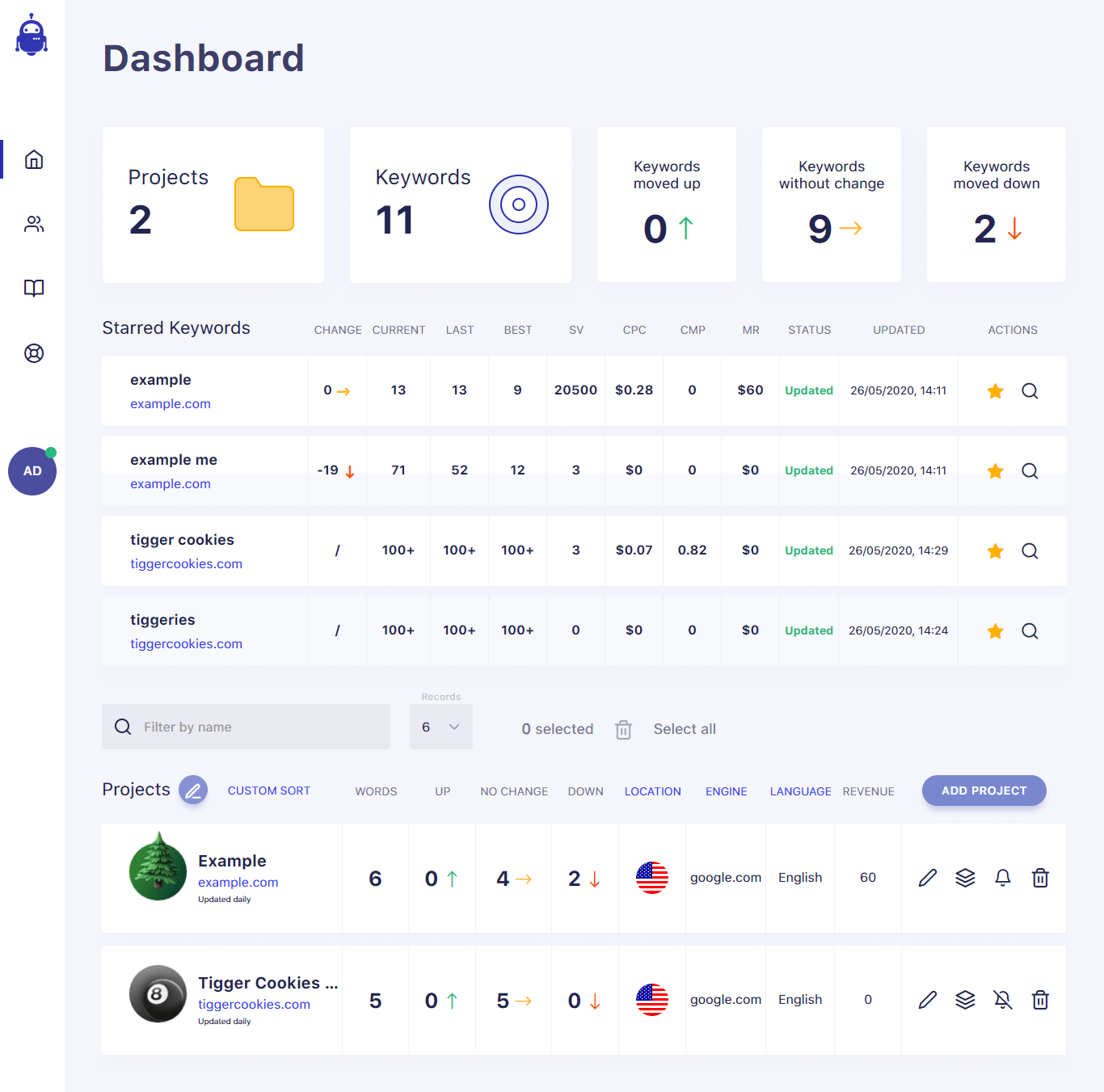
Upon entering a project, choose any of the keywords you want to take a closer look at.
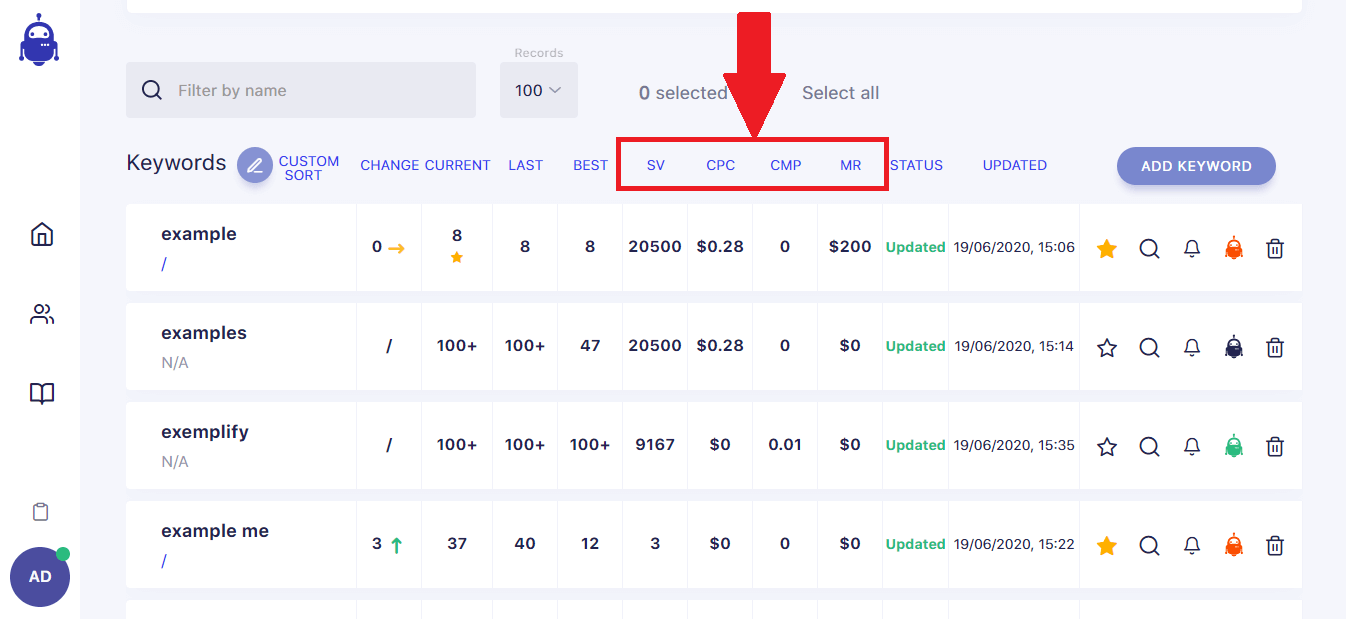
There you will be able to see the advanced data for this keyword:
- Keyword Search volume (SV)—The number of average searches a keyword had on a monthly basis for a particular location.
- Cost per click (CPC)—The average cost for every click on a paid search result for a particular keyword. The value is expressed in USD and varies based on how much advertisers spend on ads.
- Competition (CMP)—The amount of competition a particular keyword has against others (how much is used in comparison to other keywords).
- Monthly revenue (MR)—The monetary income in USD you can expect from a particular keyword for the current month.
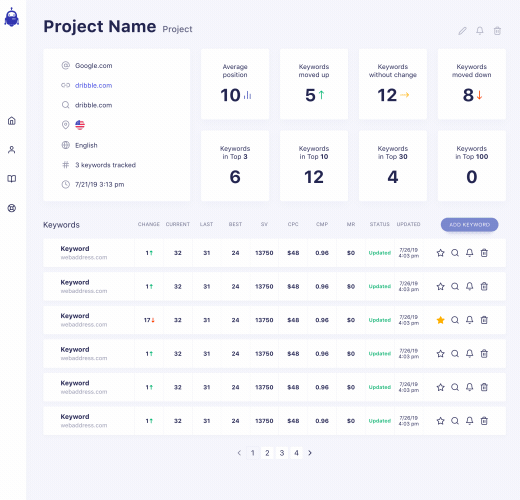
SW Score
Aside from just displaying Google keyword search volume, SerpWatch uses this information to calculate the SW Score as well.
SerpWatch allows users to assign the level of importance for each keyword tracked within a project via four types of keyword weight:
- None—The keyword is ignored and unused in the equation.
- Low—The keyword has a very low impact on the project ranking.
- Default—The keyword has a mid-range influence on the project.
- High—A very important keyword for the project influencing the general project position the most.

SW Score allows you to flag the most important keywords (for example, after you check the keyword search volume for each of them), monitor their influence on the project, and, ultimately, measure the level of success and apply necessary changes to a marketing campaign.
You can keep track of project health in the SW Score ranking chart in the Project overview.
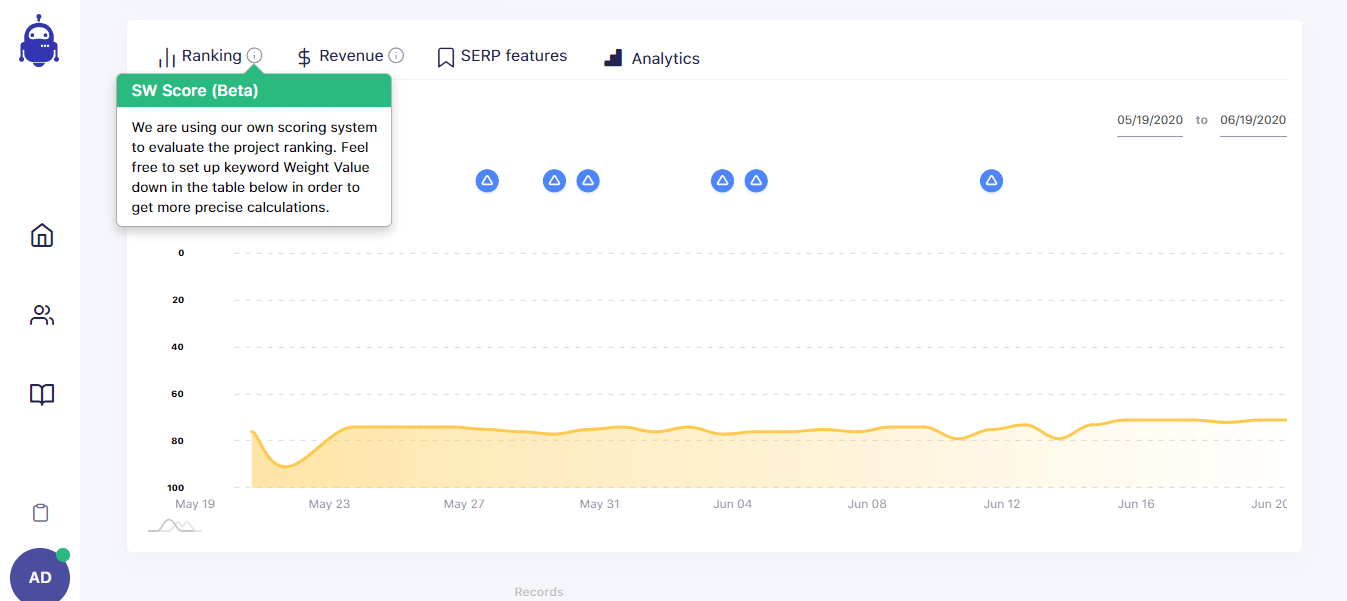
While the SerpWatch rank tracker is not predominantly used for checking keyword search volume, its value lies in putting all gathered information in a context. That makes all data immediately actionable and consistently relevant.
So try SerpWatch now!
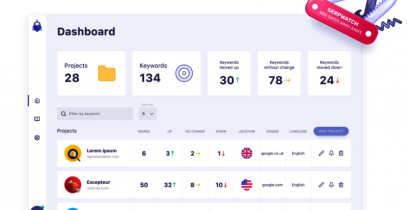
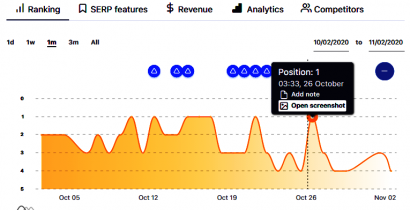
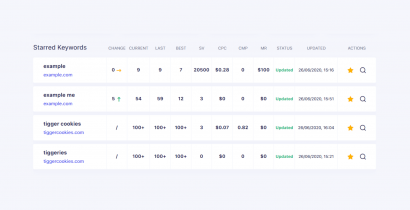
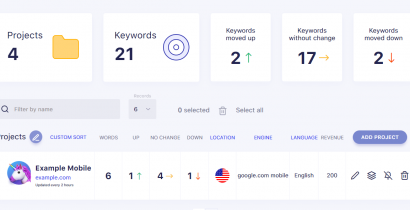
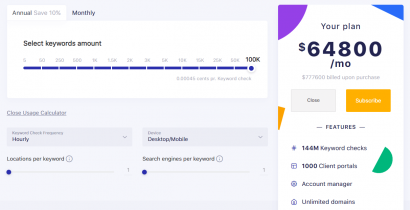
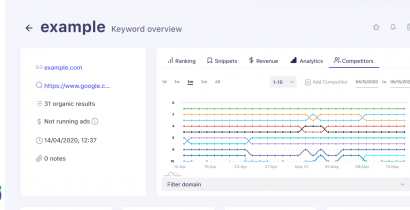
There are currently no comments.
Be the first!))